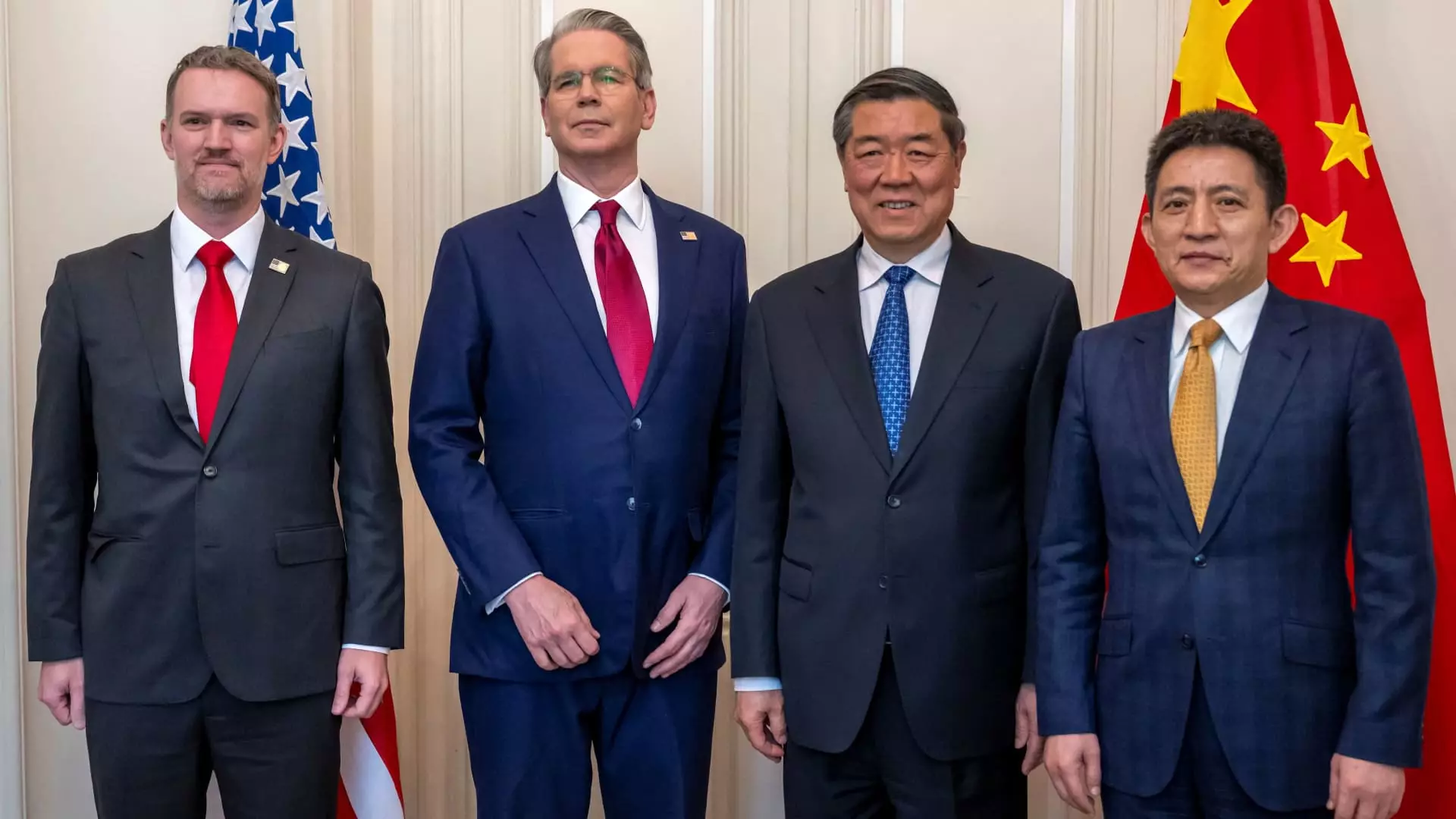In the ever-developing saga of U.S.-China relations, the recent meetings between top trade officials in London reveal a landscape marred by uncertainty and mistrust. These discussions, involving prominent figures like U.S. Treasury Secretary Scott Bessent and China’s Vice Premier He Lifeng, are not just routine negotiations; they represent a critical moment where the fate of two global superpowers hangs in the balance. The current trajectory suggests an ominous future as each country grapples with issues that extend well beyond mere tariffs—it’s about power dynamics, technological supremacy, and global influence.
A Trade War on the Brink
Last week, a seemingly routine phone call between President Trump and President Xi Jinping reignited hopes that both parties might find common ground. However, with a backdrop of increasing tensions—triggered by Trump’s aggressive tariffs and China’s retaliatory measures—cynicism looms large. Both nations have engaged in a tit-for-tat escalation, which indicates that negotiations are imbued with animosity and suspicion rather than the spirit of cooperation.
U.S. officials have accused China of backsliding on agreements made in Geneva, which aimed to reduce tariffs significantly over a temporary period. Allegations that Beijing has delayed providing critical minerals to the U.S. underscore the fragility of trust between the two nations. Similarly, China’s grievances surrounding new U.S. restrictions on student visas and technology exports point to a standoff that feels as much personal as it is political.
The Underlying Stakes: More Than Just Trade
The concerns surrounding this trade dispute delve deeper than exports and imports; they are intricately linked to issues of national security and technological supremacy. The argument championed by experts like Rebecca Harding highlights the existential battle brewing in the digital age—not just over market shares but over the future of global power. With rapid advancements in artificial intelligence and defense capabilities, the implications of this struggle could redefine not only the economies of both nations but also the very fabric of international relations in the 21st century.
As Harding articulately points out, this is not merely about lowering tariffs or addressing trade deficits; it embodies a fundamental competition for influence in a world increasingly driven by data and technology. Therefore, any talk of “trade agreements” must be reframed as part of a grander narrative where both countries vie for leadership in defense, technology, and resources.
The Pessimism of Experts
Voices from the financial world echo a sense of defeatism regarding the outcomes of these talks. Many analysts, including Zhiwei Zhang, express skepticism that substantive solutions will emerge from these negotiations. The expectation is that while there might be temporary fixes—perhaps in the export of rare earth minerals—these will do little to assuage the larger existential crisis between the two powers. If anything, the temporary fixes can be seen as patches on a much deeper, systemic clash of ideologies and interests.
The overall pessimism surrounding the talks stems from a broader realization among experts that shifting the landscape of U.S.-China relations demands significantly more than what can be accomplished in a few meetings. With deeply entrenched positions on both sides, the likelihood of arriving at a robust, long-lasting solution seems dubious, destined to perpetuate the cycle of conflict.
The Political Implications and Onlookers’ Perspectives
For liberal democracies watching closely from the sidelines, the outcome of these talks could reverberate extensively. A failure to reach a reasonable compromise not only jeopardizes economic stability but also amplifies concerns surrounding global governance in an increasingly polarized world. U.S.-China tensions impact trade routes, military posture, and diplomatic relations across various spheres, emphasizing that what seems to be an isolated trade dispute could soon engulf the planet in a broader conflict.
In this charged atmosphere, the role of international bodies and allied nations has become crucial in mediating and influencing discussions. The U.S. and China will need to consider not only their national interests but also how they fit into a larger coalition of nations seeking to avoid a world shaped by hostility and rivalry.
As we reflect on this pivotal moment, it is evident that the stakes are staggeringly high, and the path forward is fraught with challenges. The echo of distrust can be felt across the global landscape, making the need for clarity, transparency, and genuine cooperation more pressing than ever.



Leave a Reply